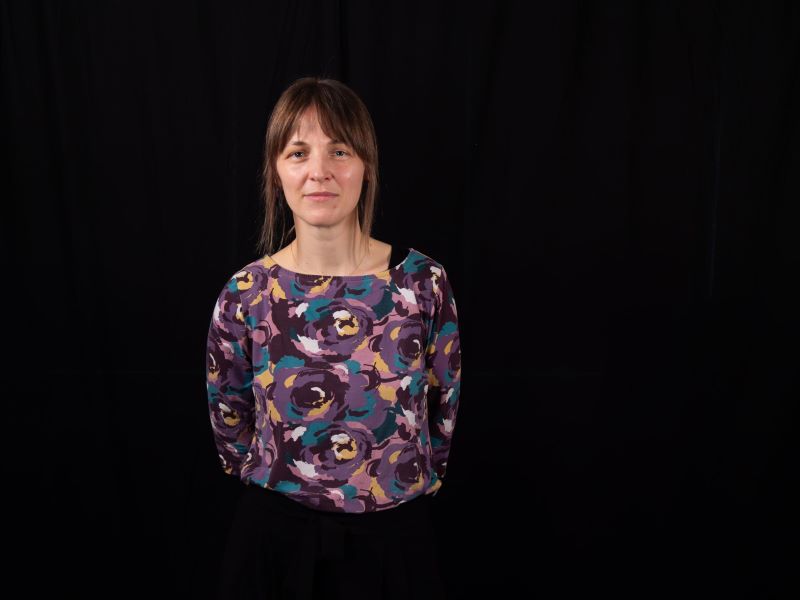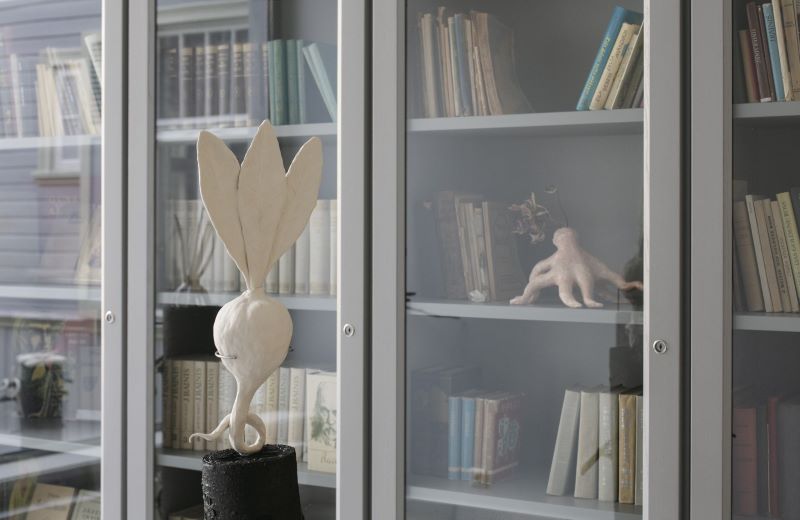Jana Kukaine: revisiting humans’ relationship with plants
The topic of plants has become increasingly popular in Latvian contemporary culture in the last decade. This trend reflects the growing interest and desire of Latvian society to address the challenges that come with environmental changes and the climate crisis. It also aligns with the current shift towards plants in the humanities and social sciences. Therefore, Jana Kukaine, Lead Researcher at the Rīga Stradiņš University (RSU) Faculty of Social Sciences has initiated a postdoctoral grant project titled Vegetal Agency and Contemporary Art: a Sustainable Relationship With the More-Than-Human World (Augu aģence un laikmetīgā māksla: ilgtspējīgas attiecības ar vairāk-kā-cilvēka pasauli) together with colleagues from the UK, France, Finland, Lithuania, and Estonia.

Jana Kukaine. Photo: RSU
The interdisciplinary project aims to develop the phyto-aesthetic perspective. This approach focuses on strategies that contemporary artists in Latvia use to revisit human relationships with nature, making them sustainable, mutual, and horizontal.
‘I base the foundations of phyto-aesthetics on the concept of vegetal agency, which encourages us to view plants and nature more broadly and in a way that is less familiar to Western culture and society – not as resources, functions, or decorations, but as self-sufficient, complex, and capable participants in natural and cultural processes,’ explains the researcher.
In the project, Kukaine will develop a glossary and theoretical frameworks that recognise and appreciate the aesthetic, social, and political aspects of vegetal agency. This is intended to challenge the paradigms prevalent in Western culture. Contemporary art not only expresses the uncomfortable truth about the gradual and irreversible degradation of ecosystems, but also offers possibilities for action.

From artist Liene Mackus’ installation “Poisonous Plant”. Mixed media. 2022. Work from the exhibition Visceral Transitions curated by Jana Kukaine at the Rainis and Aspazija Summer House. Photo: Kristīne Madjare
By activating human senses, imagination, and memory, the synergy of plant philosophy and contemporary art constructs and brings to life new relationship models that foster the transition to a more sustainable lifestyle and create more-than-human future scenarios.
Project activities also include organising a symposium and a creative workshop, preparing video lectures, experience exchange, and promoting international collaboration. The project’s international partners are Kingston University (UK), the University of Paris (France), the University of Eastern Finland (Finland), Vilnius University (Lithuania), and the University of Tartu (Estonia).
The activity is being implemented within the project “Internal Consolidation of RSU and External Consolidation of RSU and LASE” (No. 5.2.1.1.i.0/2/24/I/CFLA/005).




